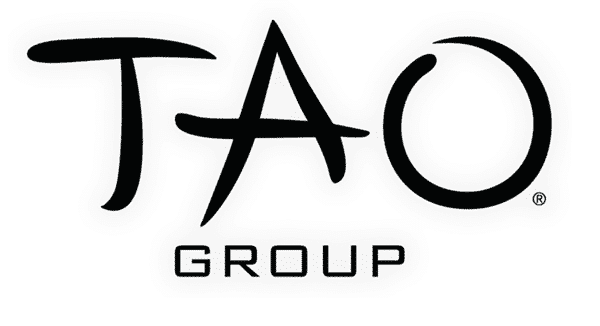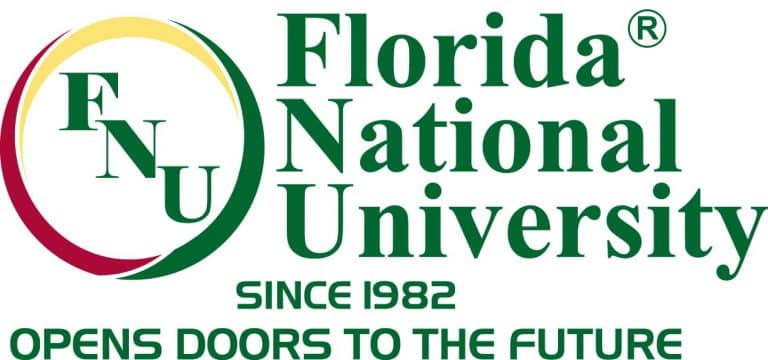In 2023, the landscape of social media marketing has evolved, and “why engagement is the new metric of success on social media” has become a crucial question for businesses to answer. Gone are the days when merely having a presence on social media platforms was enough; today, businesses must foster meaningful connections with their audience and adapt to ever-changing algorithms to stay ahead of the curve. In this blog post, we will delve into the world of engagement metrics, their importance, and how focusing on them can lead to unparalleled success on social media.
Key Takeaways
Engagement metrics are becoming increasingly important in social media due to the dynamic nature of platforms and impact of authentic connections.
Businesses must focus on engagement metrics such as likes, reactions, comments, shares & retweets to foster meaningful connections with their audience.
Doing so can lead to improved insights into user preferences, increased organic reach & brand loyalty for long-term success.
The Rise of Engagement Metrics in Social Media

The dynamic nature of social media and the growing understanding of the importance of authentic audience connections contribute to the shift in focus towards social media engagement metrics. As businesses invest more resources into their social media efforts, understanding and leveraging engagement metrics, including social metrics, has become increasingly crucial to maximize the return on investment and drive growth.
The rise of engagement metrics in social media is primarily due to two factors: changing algorithms and the impact of authentic connections. We’ll examine how these factors contribute to the increasing significance of engagement metrics.
Changing Algorithms
In recent years, social media platforms have continuously updated their algorithms to prioritize content with higher engagement. This means that content that generates more likes, comments, shares, and other forms of engagement will have better visibility and reach in users’ feeds. One example of this is the emphasis on video completion rate, which signals to the algorithm that the content is engaging and valuable.
To stay relevant on social media and ensure their content reaches the target audience, businesses must adapt to these changing algorithms. By focusing on engagement metrics, brands can optimize their content and strategies to resonate with their audience, fostering authentic connections and driving social media success.
The Impact of Authentic Connections
Authentic connections with the audience are invaluable for brands, as they lead to increased trust, loyalty, and ultimately, customer retention. These connections can be fostered by engaging with users on social media platforms, responding to comments and queries, and providing useful content.
Businesses can enhance customer experiences and build stronger relationships with their audience by monitoring and analyzing engagement metrics. For instance, comments can offer valuable insights into the audience’s opinions and preferences, helping brands tailor their content and strategies accordingly.
In essence, engagement metrics serve as a key indicator of a brand’s success on social media, guiding businesses towards creating more meaningful and authentic connections with their audience.
Types of Engagement Metrics

Engagement metrics, including likes and reactions, comments, shares and retweets, come in various forms. Each provides unique insights into audience-content interaction and resonance.
Businesses can optimize their social media efforts and better engage their audience by understanding and analyzing these metrics. We’ll delve into each metric’s significance and impact on social media engagement.
Likes and Reactions
Likes and reactions serve as fundamental indicators of audience interest and sentiment towards content. They offer invaluable insights into how users interact with content, thereby allowing brands to gain a better understanding of their audience and customize their content accordingly.
Reactions provide users with a range of emotions to express in response to posts or comments, including:
Love
Haha
Wow
Sad
Angry
As users engage with content through these reactions, businesses can gather valuable feedback on user sentiment and further refine their content strategy to better resonate with their target audience.
Comments
Comments are a valuable tool for gauging engagement on social media, as they offer greater insight into viewers’ sentiments and can stimulate productive dialogue. Analyzing comments can provide brands with a more comprehensive understanding of their audience’s views and sentiments regarding their content, products, and services.
Moreover, comments can be used to initiate conversations between brands and their audience, which can aid in developing relationships and trust. Additionally, comments can be employed to promote user-generated content, which can help to enhance engagement and reach.
Shares and Retweets
Shares and retweets are actions that users can take on social media platforms to amplify and distribute content. These actions are beneficial in increasing the reach of content and demonstrating its worth to the viewers.
Focusing on creating content that encourages shares and retweets can help businesses extend their reach and attract more users to their social media accounts. This, in turn, can contribute to the success of their social media marketing efforts and help them achieve their goals through a well-crafted social media post.
Benefits of Focusing on Engagement Metrics

Businesses seeking to enhance their social media presence and performance can reap several benefits from focusing on engagement metrics. We will examine three key benefits: improved audience insights, boosted organic reach, and enhanced brand loyalty.
By understanding and leveraging these benefits, businesses can optimize their social media efforts, drive growth, and ultimately, achieve long-term success in their social media endeavors.
Improved Audience Insights
Improved audience insights help brands understand their audience’s preferences and tailor content accordingly. By analyzing engagement metrics, businesses can identify patterns and trends in user behavior, enabling them to create content that resonates with their target audience.
The advantages of improved audience insights are multifold, including increased engagement, amplified organic reach, and heightened brand loyalty. By leveraging these insights, businesses can continuously refine their content strategies and stay ahead of the competition in the ever-evolving world of social media.
Boosted Organic Reach
Organic reach on social media refers to the number of individuals who view content without any paid promotion. Boosted organic reach is a method to enhance the exposure of your content without resorting to paid advertising. This entails utilizing organic techniques such as influencer marketing, content curation, and social media contests to boost the visibility of your content.
The advantages of boosted organic reach include the expansion of your target audience, fostering collaborations with influencers, and bolstering brand loyalty. By focusing on engagement metrics and implementing strategies to boost organic reach, businesses can effectively increase their visibility on social media platforms without relying heavily on paid advertising.
Enhanced Brand Loyalty
Enhanced brand loyalty results from authentic connections and positive experiences with the brand on social media. By engaging with customers on social media, responding to their comments and queries, and providing useful content, businesses can establish a sense of trust and loyalty between the customer and the brand.
The advantages of improved brand loyalty include:
Enhanced customer retention
Heightened customer satisfaction
Augmented sales
Augmented brand recognition and awareness, which can facilitate the acquisition of new customers and contribute to the overall success of a business on social media.
Strategies to Increase Social Media Engagement

Businesses can effectively increase social media engagement by implementing strategies tailored to their audience and content. We will examine three key strategies for boosting engagement metrics: creating high-quality, relevant content, encouraging user-generated content, and leveraging social media polls and surveys.
By understanding and implementing a well-crafted social media strategy in their social media campaign, businesses can maximize their social media engagement and achieve success on various platforms.
Creating High-Quality, Relevant Content
High-quality, relevant content has a positive effect on the audience as it is tailored to their interests and needs. It encourages engagement due to its interesting and engaging nature, thus prompting people to interact with it.
Creating such content requires businesses to research their target audience’s interests and needs, include visuals like images and videos, and use storytelling techniques to evoke an emotional response. By focusing on creating high-quality, relevant content, businesses can drive engagement and foster authentic connections with their audience.
Encouraging User-Generated Content
User-generated content (UGC) is content that is created and shared by users, rather than by the brand or organization. UGC can cultivate a sense of community and promote trust in the brand, as it showcases the experiences and opinions of real people.
Brands can stimulate user-generated content by launching contests and challenges, providing incentives, and interacting with users who post content. By encouraging UGC, businesses can heighten engagement, gain more comprehensive audience insights, and augment their organic reach.
Leveraging Social Media Polls and Surveys
Utilizing social media polls and surveys is an effective method to gain valuable insights into your audience, as well as to promote interaction and engagement. By conducting polls and surveys on various topics, businesses can gather feedback from their audience, identify trends, and inform their content strategies.
Popular types of polls and surveys include multiple-choice, open-ended, and rating-based questions. By leveraging these tools, businesses can not only enhance their engagement metrics, but also fine-tune their content approach in response to audience preferences and interests.
Measuring and Analyzing Engagement Metrics

The critical aspect of social media marketing is measuring and analyzing social media metrics, particularly engagement metrics, which allows businesses to assess their progress and success in improving engagement. By monitoring key performance indicators (KPIs) such as:
Likes
Comments
Shares
Click-through rates
Businesses can discern how well their content is being received by their audience and if it is generating significant interactions.
We will examine three main methods for measuring and analyzing engagement metrics: utilizing social media analytics tools, establishing benchmarks and goals, and consistently reviewing and adjusting strategy.
Using Social Media Analytics Tools
Social media analytics tools are software or platforms that assist in tracking and analyzing data from social media platforms. These tools can help businesses monitor engagement metrics, offering insights for refining content strategy and evaluating the success of campaigns.
Popular social media analytics tools include:
Sprout Social
HubSpot
Hootsuite Analytics
BuzzSumo
Google Analytics
Sendible
By leveraging these tools, businesses can effectively track their engagement metrics and make informed decisions to optimize their content strategies, enhance their overall social media performance, and excel in tracking social media metrics.
Setting Benchmarks and Goals
Establishing benchmarks and goals in social media is essential for businesses to evaluate their progress and success in improving engagement. Benchmarks in social media refer to the standards or average performance metrics that businesses utilize to compare their own social media performance against, while goals in social media are the specific objectives or targets that businesses set for themselves to achieve on social media platforms.
Researching competitors’ performance, establishing realistic goals, and monitoring progress over time are some strategies that can be employed to set benchmarks and goals in social media. By setting clear benchmarks and goals, businesses can effectively measure their success in increasing engagement and adapt their strategies accordingly.
Regularly Reviewing and Adjusting Strategy
Regularly reviewing and adjusting strategy is paramount for businesses in order to adapt to changing market conditions, identify and address weaknesses, and capitalize on new opportunities. This helps to ensure that the strategy remains aligned with the organization’s goals and objectives and enables continuous improvement and innovation.
Businesses can review and adjust their strategy by performing regular reviews of their current strategy, evaluating the effectiveness of their current strategy, and modifying their strategy according to the review results. This may involve altering the emphasis of the strategy, introducing new tactics, or adjusting existing tactics to ensure that the business remains competitive and achieves long-term success on social media.
Case Studies: Brands Excelling in Social Media Engagement

Let’s examine some case studies of brands excelling in social media engagement to illustrate the importance of focusing on engagement metrics and implementing effective strategies. These brands showcase how a strong emphasis on engagement metrics, combined with creative and innovative tactics, can lead to unparalleled success on social media.
Examples of successful brands in social media engagement include:
Coca-Cola’s utilization of influencers to advertise their products
Nike’s incorporation of social media to interact with their customers
Starbucks’ utilization of customer feedback to enhance their products and services
By learning from these brands and adopting a similar focus on engagement metrics, businesses can significantly improve their social media performance and achieve long-term success.
Summary
In conclusion, engagement is the new metric of success on social media in 2023, and businesses must adapt to this shift in focus by implementing effective strategies and monitoring their progress. By understanding the importance of engagement metrics, optimizing content for audience preferences, and leveraging tools such as social media polls and surveys, businesses can drive growth, foster authentic connections, and achieve long-term success on various social media platforms.
As we’ve seen from the case studies discussed, focusing on engagement metrics and implementing innovative tactics can lead to unparalleled success on social media. By adopting a similar approach, businesses can not only improve their social media performance, but also forge stronger connections with their audience and achieve long-term success in an ever-evolving digital landscape.
Frequently Asked Questions
Why is engagement so important on social media?
Engagement on social media is important as it helps improve brand awareness, customer service, loyalty, insights and marketing efforts; enhances consumer touchpoints; allows for better relationships to form with customers, leading to more opportunities for increased word-of-mouth referrals and sales; and ultimately encourages customer loyalty.
What is the metric of social media success?
Engagement rate and conversion rate are two key metrics to measure the success of social media campaigns. Engagement rate reveals the size of your engaged audience, while conversion rate tells you how much revenue your marketing efforts have generated.
What are the main types of engagement metrics?
The main types of engagement metrics are likes and reactions, comments, and shares and retweets.
How can businesses boost their organic reach on social media?
Businesses can increase their organic reach on social media by focusing on engagement metrics, creating relevant content, and leveraging user-generated content.
What are some popular social media analytics tools?
Popular social media analytics tools include Sprout Social, HubSpot, Hootsuite Analytics, BuzzSumo, Google Analytics, and Sendible.




































